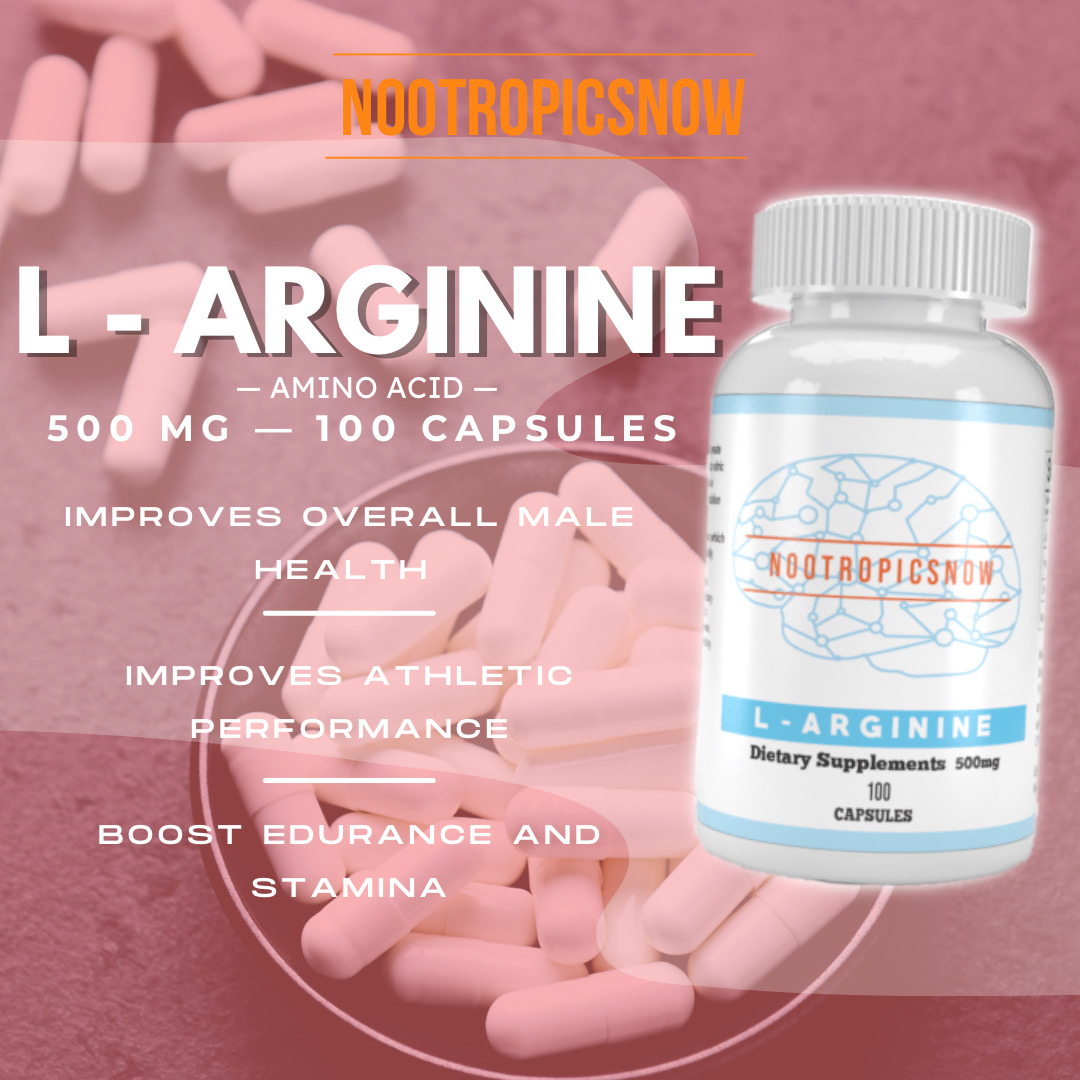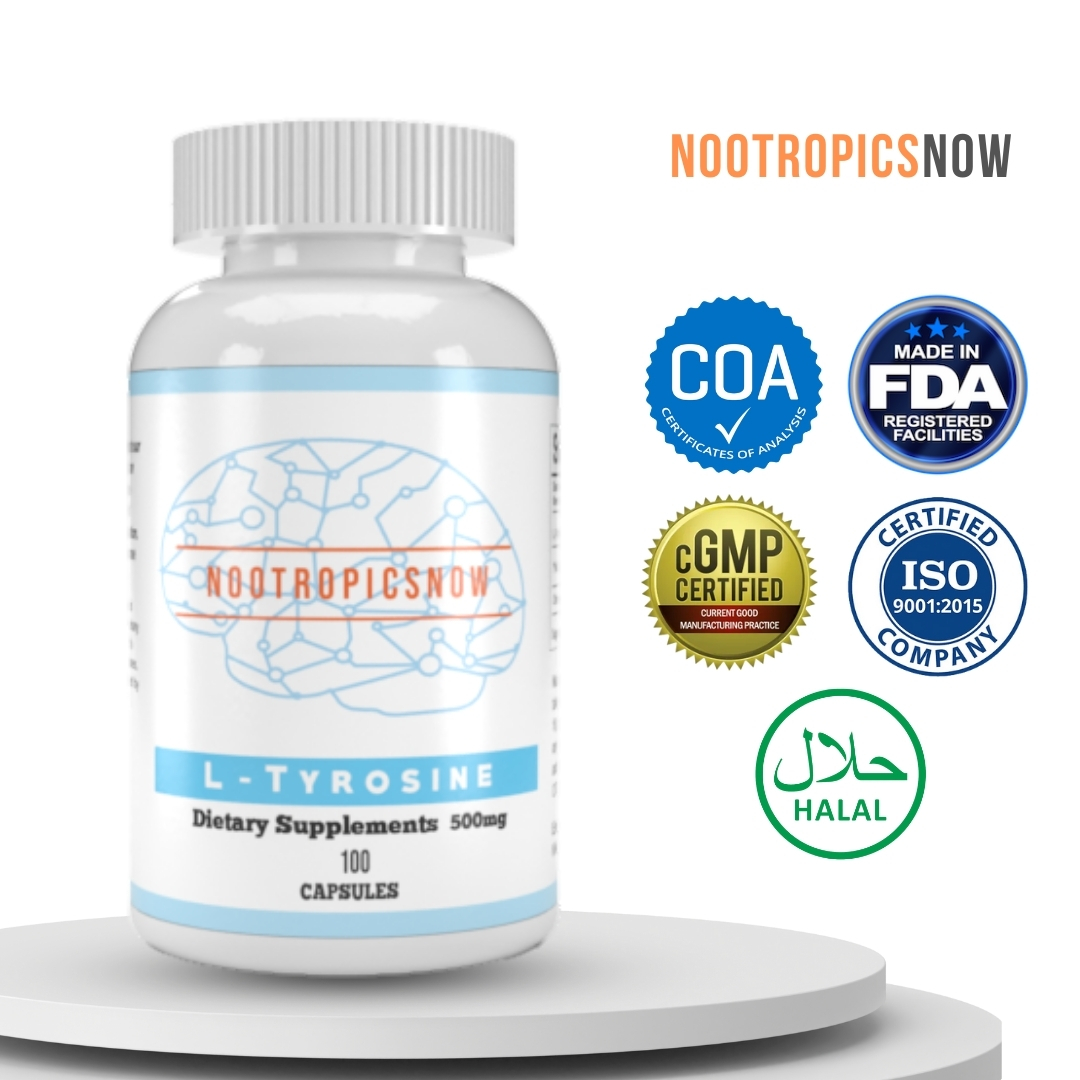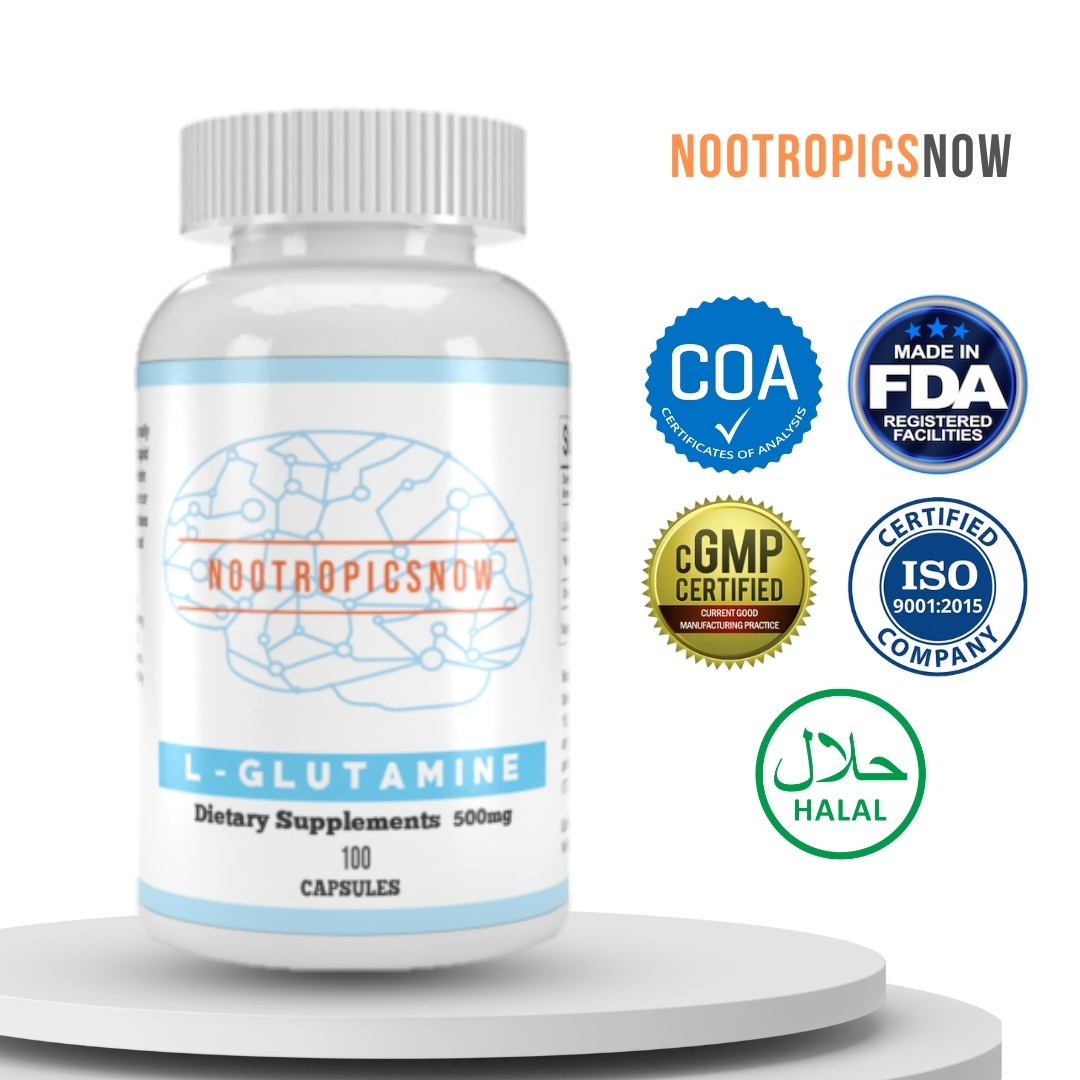L-Glutamine: Benefits, Uses, & Dosage

`markdown
Glutamine: The Amino Acid with Multiple Health Benefits
Glutamine, often referred to as L-Glutamine, is a fascinating and crucial amino acid present abundantly within the human body. It is far more than just a building block for proteins; it plays pivotal roles in a wide spectrum of physiological processes. These range from bolstering the immune system and nurturing gut health to aiding in muscle recovery and even influencing brain function. Consequently, understanding the benefits, uses, and potential side effects of glutamine is essential for anyone interested in optimizing their health and well-being. This comprehensive guide delves deep into the world of L-Glutamine, offering insights backed by scientific research.
Understanding L-Glutamine: The Basics
L-Glutamine is a non-essential amino acid. However, under periods of intense stress, illness, or injury, it can become conditionally essential. This means that the body’s natural production may not be sufficient to meet its needs, making supplementation beneficial. Let’s break down the fundamentals:
What is an Amino Acid?
Amino acids are organic compounds that combine to form proteins, the foundation of many biological processes within the body. Proteins are responsible for building and repairing tissues, producing enzymes and hormones, and transporting nutrients. There are 20 standard amino acids, classified as either essential or non-essential.
The Role of L-Glutamine
L-Glutamine is the most abundant free amino acid in plasma and muscle tissue. It serves multiple vital functions:
L-Glutamine vs. D-Glutamine
It’s important to distinguish between L-Glutamine and D-Glutamine. L-Glutamine is the naturally occurring form found in foods and produced by the body. It is biologically active and involved in the processes described above. D-Glutamine is its mirror image and is not biologically active. Supplements typically contain L-Glutamine.
The Benefits of L-Glutamine: A Deep Dive
The benefits of L-Glutamine are diverse and well-documented. It is involved in a multitude of biological pathways, affecting various aspects of health and performance.
Enhancing Gut Health
The gut, often referred to as the “second brain,” plays a critical role in overall health. It is responsible for nutrient absorption, waste elimination, and housing a significant portion of the immune system. L-Glutamine is a key player in maintaining a healthy gut.
Boosting the Immune System
The immune system is the body’s defense mechanism against infections and diseases. L-Glutamine plays a vital role in supporting immune function.
Aiding Muscle Recovery and Growth
Athletes and fitness enthusiasts often use L-Glutamine supplements to aid in muscle recovery and growth. Its benefits extend beyond just protein synthesis.
Supporting Brain Function
The brain is a highly metabolically active organ, requiring a constant supply of nutrients. L-Glutamine plays several crucial roles in supporting brain function.
Potential Role in Cancer Treatment Support
While L-Glutamine is not a cancer treatment, it may play a supportive role in cancer care.
Who Can Benefit from L-Glutamine Supplementation?
While most people can produce enough L-Glutamine on their own, certain individuals may benefit from supplementation.
Food Sources of L-Glutamine
L-Glutamine is found in a variety of foods, both animal and plant-based. Including these foods in your diet can help ensure you are getting enough of this important amino acid.
L-Glutamine Supplementation: Dosage and Forms
L-Glutamine supplements are available in various forms, including powder, capsules, and tablets. The appropriate dosage depends on individual needs and goals.
Safety and Potential Side Effects
L-Glutamine is generally considered safe for most people when taken at recommended doses. However, some potential side effects and precautions should be considered.
L-Glutamine and the Keto Diet
The ketogenic (keto) diet is a high-fat, very low-carbohydrate diet that has gained popularity for its potential weight loss and health benefits. L-Glutamine can be a valuable supplement for individuals following a keto diet.
Scientific Research and L-Glutamine
Numerous studies have investigated the effects of L-Glutamine supplementation.
Choosing a Quality L-Glutamine Supplement
With so many L-Glutamine supplements on the market, it can be challenging to choose a high-quality product. Consider the following factors:
Conclusion
L-Glutamine is a versatile and essential amino acid that plays a crucial role in various aspects of health and performance. From supporting gut health and boosting immune function to aiding muscle recovery and supporting brain function, L-Glutamine offers a wide range of benefits. While most people can produce enough L-Glutamine on their own, certain individuals may benefit from supplementation. If you are considering taking L-Glutamine, consult with a healthcare professional to determine the appropriate dosage and ensure it is safe for you. Including L-Glutamine-rich foods in your diet can also help ensure you are getting enough of this important nutrient.
By understanding the benefits, uses, and potential side effects of L-Glutamine, you can make informed decisions about whether supplementation is right for you. Whether you are an athlete looking to improve muscle recovery, an individual struggling with gut issues, or someone seeking to support your immune system, L-Glutamine may be a valuable addition to your health regimen.
`
L-Glutamine: An In-Depth Look at Benefits and Uses
L-Glutamine, often simply referred to as glutamine, is a non-essential amino acid that plays a crucial role in numerous bodily functions. Consequently, understanding its benefits, sources, and appropriate uses becomes increasingly important for those seeking to optimize their health and well-being. While the body can produce glutamine, supplementation might become beneficial under specific circumstances, such as intense exercise or illness. This article provides a detailed exploration of glutamine, its significance, and its applications for health enhancement.
Understanding L-Glutamine
L-Glutamine stands out as one of the most abundant free amino acids found within our bloodstream and muscles. It constitutes a building block for proteins and performs vital roles in various metabolic processes. Unlike essential amino acids, the body can synthesize L-glutamine from glutamate and ammonia, but under high-stress situations, its demand may outpace production, requiring supplementation.
Chemical Properties and Synthesis
Chemically, glutamine features a similar structure to glutamic acid, exhibiting a carboxamide group on the side chain. This structure enables its involvement in numerous biochemical reactions. It arises through the enzymatic action of glutamine synthetase, primarily within muscle tissue and the brain. Furthermore, dietary sources also contribute significantly to maintaining adequate glutamine levels.
L-Glutamine vs. D-Glutamine
It’s important to note that glutamine exists in two forms: L-glutamine and D-glutamine. L-glutamine is the naturally occurring form that the body utilizes for various biological processes, therefore holding significant nutritional value. Conversely, D-glutamine is a synthetic form, lacking substantial benefits and not typically found in supplements. Consequently, consumers should always confirm that their supplements contain L-glutamine to ensure efficacy.
Key Benefits of L-Glutamine Supplementation
Supplementing with L-glutamine offers a diverse array of potential health benefits, particularly in specific contexts. Understanding these advantages can guide informed decisions about incorporating glutamine into one’s health regimen.
Enhanced Gut Health
L-Glutamine plays a vital role in maintaining the integrity of the intestinal lining. The gut uses glutamine as a primary energy source, ensuring its cells function optimally and preventing “leaky gut syndrome,” also known as increased intestinal permeability. Therefore, supplemental glutamine aids in strengthening the gut barrier, decreasing inflammation, and promoting the absorption of nutrients. Conditions such as irritable bowel syndrome (IBS) and inflammatory bowel disease (IBD), including Crohn’s disease and ulcerative colitis, may potentially benefit from glutamine supplementation. Glutamine helps reduce intestinal permeability and inflammation, thereby supporting overall digestive health.
Boosted Immune Function
L-Glutamine emerges as a significant fuel source for immune cells, including lymphocytes and macrophages. Adequate glutamine levels support these cells’ proliferation, activity, and function, bolstering the immune system’s ability to fight off infections and diseases. During times of stress, such as illness or intense physical exertion, glutamine requirements increase, and supplementation may help prevent immune system suppression. Studies indicate that glutamine supplementation reduces the risk of infections, especially following surgical procedures.
Improved Muscle Recovery
Intense physical activity depletes glutamine stores in the muscles, leading to muscle fatigue and prolonged recovery times. Supplementing with L-glutamine can replenish these stores, accelerating muscle repair and reducing muscle soreness following exercise. Moreover, glutamine’s role in protein synthesis supports muscle growth and maintenance, benefiting athletes and those engaging in resistance training.

View Product
Studies highlight that glutamine supplementation can mitigate muscle damage and promote nitrogen balance, essential for muscle recovery.
Enhanced Athletic Performance
By supporting muscle recovery and reducing fatigue, L-glutamine can contribute to improved athletic performance. It helps maintain hydration levels, prevent overtraining syndrome, and sustain optimal energy levels during prolonged exercise. Athletes involved in endurance sports or high-intensity training may find glutamine supplementation particularly advantageous. Additionally, glutamine assists in glycogen synthesis, a key process for replenishing energy stores in muscles after exertion.
Support for Wound Healing
L-Glutamine plays a crucial role in collagen production, a protein essential for wound healing. Sufficient glutamine levels support the proliferation of fibroblasts, cells responsible for producing collagen, leading to faster and more efficient wound closure. Therefore, individuals recovering from surgery, burns, or other injuries may benefit from glutamine supplementation to promote tissue repair and minimize scarring.
Role in Neurotransmitter Balance
L-Glutamine serves as a precursor to both excitatory (glutamate) and inhibitory (GABA) neurotransmitters in the brain. Maintaining a proper balance between these neurotransmitters is essential for optimal cognitive function, mood regulation, and sleep quality. While glutamine can be converted into glutamate, the brain tightly regulates this process to prevent excitotoxicity. By supporting neurotransmitter synthesis, glutamine may potentially improve mental clarity, reduce anxiety, and promote a more stable mood.
Dietary Sources of L-Glutamine
While glutamine supplements provide a concentrated dose, numerous food sources also offer this vital amino acid. Incorporating these foods into the diet can help maintain adequate glutamine levels and support overall health.
Animal-Based Sources
Plant-Based Sources
L-Glutamine Supplementation: Dosage and Forms
When considering L-glutamine supplementation, understanding appropriate dosages and available forms is essential for maximizing benefits and minimizing potential side effects.

View Product
Dosage Recommendations
The ideal dosage of L-glutamine varies depending on individual needs, health status, and specific goals. However, general recommendations typically range from 5 to 20 grams per day, divided into multiple doses. Individuals using glutamine to support intense training or recover from illness may benefit from higher doses, while those seeking general health maintenance may require lower amounts. It’s always advisable to start with a lower dose and gradually increase it to assess tolerance and effectiveness.
Available Forms
Regardless of the form chosen, prioritize purchasing supplements from reputable brands that undergo third-party testing to ensure purity and potency.
Potential Side Effects and Precautions
L-Glutamine is generally considered safe for most people when taken in recommended doses. However, some individuals may experience side effects, particularly at higher dosages.
Common Side Effects
Precautions
Glutamine and Specific Health Conditions
L-Glutamine has shown potential benefits in managing several specific health conditions. It is important to consult with a healthcare professional before using glutamine as a treatment for any medical condition.
Irritable Bowel Syndrome (IBS)
Glutamine has demonstrated the capacity to alleviate certain IBS symptoms by reducing intestinal permeability and decreasing inflammation within the gut. Research indicates that individuals with diarrhea-predominant IBS may experience noteworthy improvement following glutamine supplementation.
Cancer Treatment Support
Glutamine might aid in mitigating some side effects associated with cancer treatments, such as chemotherapy and radiation therapy. It helps preserve intestinal integrity, reducing the risk of mucositis (inflammation of the mucous membranes) and diarrhea. Furthermore, glutamine may potentially support immune function during cancer treatment, bolstering the body’s ability to combat infections.
HIV/AIDS
Individuals with HIV/AIDS often experience compromised immune function and intestinal problems. Glutamine supplementation may improve immune cell function, enhance nutrient absorption, and reduce the risk of infections in this population.
Cystic Fibrosis
Glutamine has shown promise in improving nutrient absorption and reducing intestinal inflammation in individuals with cystic fibrosis, a genetic disorder that affects the digestive system and lungs.
L-Glutamine: Integration into a Holistic Health Approach
While L-glutamine supplementation can provide numerous benefits, it’s essential to view it as part of a holistic approach to health. Prioritizing a balanced diet, regular exercise, adequate sleep, and stress management techniques contributes significantly to overall well-being.
Synergistic Effects
Combining L-glutamine with other nutrients and supplements may amplify its effects. For example, taking glutamine with probiotics can further support gut health, while combining it with creatine can enhance muscle recovery and growth.
Individualized Approach
The optimal approach to L-glutamine supplementation varies depending on individual needs, lifestyle, and health goals. Consulting with a healthcare professional or registered dietitian helps create a personalized plan that maximizes benefits while minimizing potential risks.
Long-Term Considerations
While L-glutamine is generally safe for short-term use, long-term supplementation requires careful consideration. Monitoring for any potential side effects and adjusting the dosage as needed is essential for maintaining safety and effectiveness.
In conclusion, L-glutamine stands out as a versatile amino acid that delivers diverse health benefits, ranging from gut and immune support to enhanced muscle recovery and athletic performance. By gaining an understanding of its roles, sources, and appropriate uses, individuals can potentially harness the power of glutamine to optimize their well-being. Remember to consult with a healthcare professional prior to initiating any new supplementation regimen, especially if you possess pre-existing health conditions or are currently taking medications.

View Product


